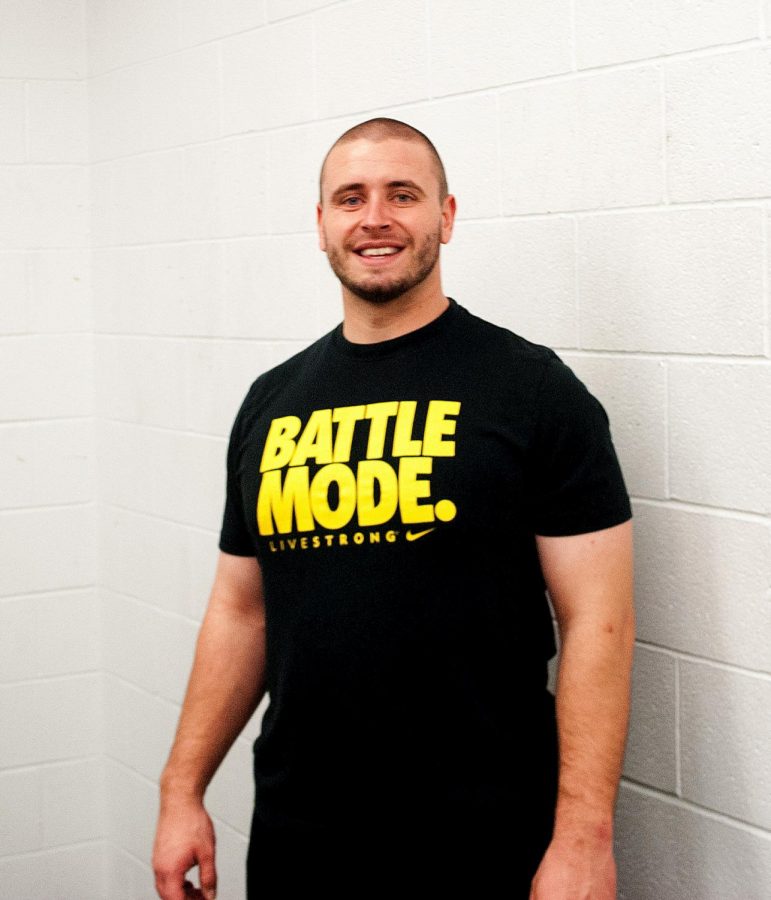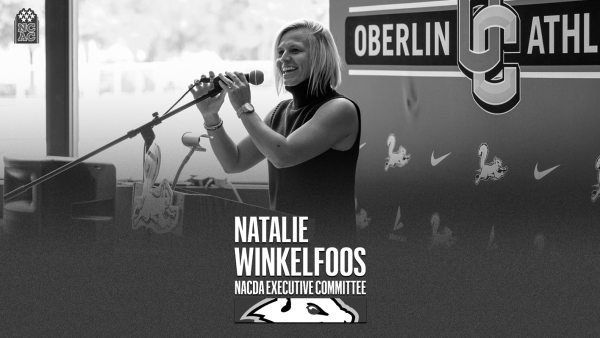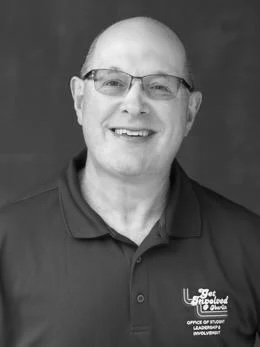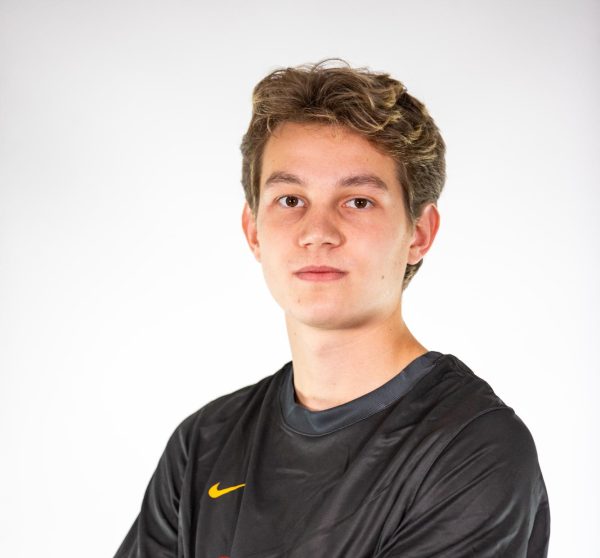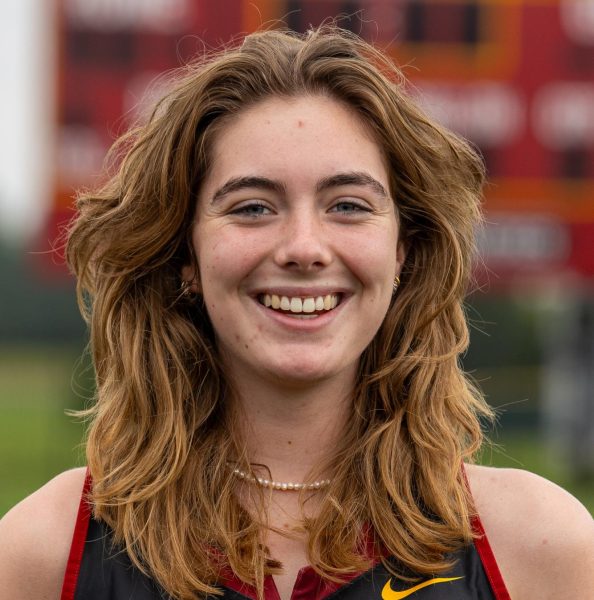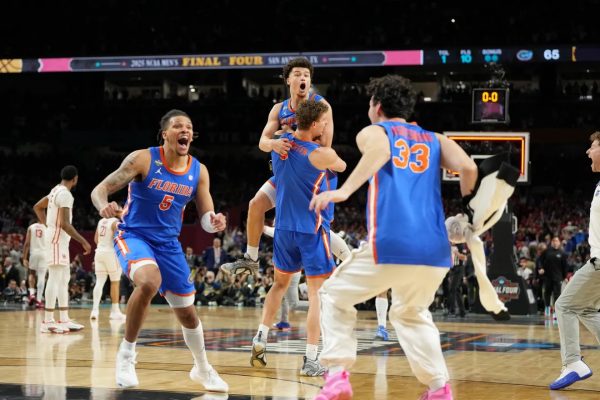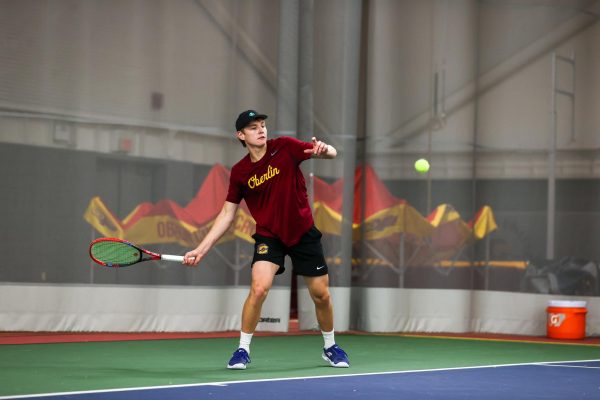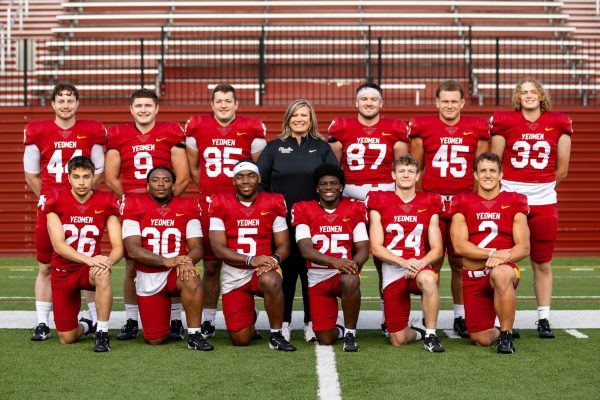In The Locker Room with Strength and Conditioning Coach Grant Butler
Grant Butler, Oberlin College strength and conditioning coach.
This week, the Review sat down with Strength and Conditioning Coach Grant Butler, who is in his third year of employment at the College. Since his last interview with the Review two years ago, he has strived to improve his redesign of Oberlin’s strength and conditioning program by shifting his focus to athlete’s mental toughness.
This interview has been edited for length and clarity.
What is your role on campus and in the athletic department at Oberlin?
My role on campus is primarily to work with the athletic department to design the strength programming for student athletes and to help the athletes execute the programming. I also do basic supervisory work in the weight room too, but my main focus is to work on strength training with most of the varsity teams.
How has your program changed and developed over the past two years you’ve worked with Oberlin athletes?
My first year coaching at Oberlin was the 2015–2016 school year. Year one was focused on building a base — trying to get athletes accustomed to what this kind of work is going to look like, what it’s going to feel like, and ultimately how to mentally and emotionally do what we’re asking of them. A lot of what we do in training is very high volume, very painful, and both mentally and emotionally challenging. So year one was really just geared towards understanding how to do the basics and build a base with stability and power. Year two was focused on expanding that base, trying to build upon it and make it grow. This year — year three — we finally have that base, so we’re building from here, and really focusing on developing the strength and power that sets athletes apart at this level.
It seems like a lot of your training involves mental and emotional strength, as well as physical. Can you expand on that?
Physically, a lot of athletes at this level match up really closely, but one of the things that separates them is their mental and emotional abilities. When you’re mentally and emotionally stronger in places like the weight room, that’s really going to carry over on the field. In the weight room, we try to set up the athletes with difficult challenges, but I never ask them to do anything they can’t do. The goal is to push them because the more they succeed at the mental and emotional parts and the more they recognize they’re performing well, the more that confidence carries over to what they do not only on the field, but in everything they do in their lives — whether that be academics, independent projects, or their professions. The mental and emotional components are so crucial to what we do that we have to build it. The weight room is so much more than just a physical entity.
What do you value about working with Oberlin athletes, and with Division III athletes in general?
What really resonates with me about Oberlin athletes is their commitment to academics while also trying to play sports. That’s something that’s very tough to juggle, and the higher up you get into Division I sports, the more businesslike everything is — not that there isn’t a focus on academia at all, but at this level it’s different. At the Division III level, there’s a focus on trying to make each student athlete a better person and to feel confident that, at the end of the day, we’re here to focus on developing these kids’ values and moral compasses. When we send them out into the world after their Division III experience, we’re pretty hopeful we’ve sent out a better person.
Obviously the program you run is rigorous and challenging. How do you motivate your student-athletes to stick with it?
One thing I really focus on is staying positive and encouraging. When I’m in the weight room I’m pretty loud, but if you really listen to what I’m saying, it’s only words of encouragement. I’m constantly saying things like, “Hey, let’s find a way. Hey, you can do this. You’re in the driver’s seat” — to try to remind them that they’re in control of themselves and what they can do. I try to be the most motivated and focused person in the weight room, because I have to set the tone of what the environment in there is gonna be like. If I’m focused, excited, and ready to go, the athletes are gonna be more focused, excited, and ready to go. I also focus on transitions — pushing people to the next level is crucial for their success. Lastly, I have to talk the talk and walk the walk myself. Everything I ask my athletes to do, I’ve done it myself. If the program doesn’t work for me, it won’t work for them. It’s really important to know that.
In the weight room, do you find it hard to accommodate to the needs of each individual athlete? Has it been difficult to accommodate for how each individual athlete gets inspired and motivated?
Yes. It’s one of the most difficult parts of the job. Generally, I’m pretty extroverted, and I can be really intense, and for some people, they mistake that as anger. For me, if I think I’m having fun and joking, it doesn’t always get communicated that way. So when I’m developing relationships with new athletes, I have to try and learn more about their personalities and figure out how they best respond. If I reach a point where I pushed the limits too far, I need to approach that person, check in, and make sure I can bring them back. It’s all a process of learning the athletes and letting them get to know me better too. Growing up, and through my past experiences, I’ve been very used to military-like structure, and intense environments are really where I thrive, but when I came here that wasn’t the structure in place. Athletes here have had to adapt to me a little bit, and I’ve had to adapt to them, but overall I want them all to know that I’m really here to see them all succeed.
What is your proudest moment you’ve had in the weight room this year?
I don’t have a specific moment, but in general, watching people step up and try to become leaders for their teams has been great. Since I’ve been at Oberlin, the drive for leadership on each team has really been growing, and now we’ve reached the tipping point. People may not necessarily be great leaders yet but they’re working hard to be — they’re looking for inspiration and solutions for their teammates and holding each other accountable. Watching teams work together has been very exciting to see, and that’s the biggest thing this year that I’ve felt proud of.


